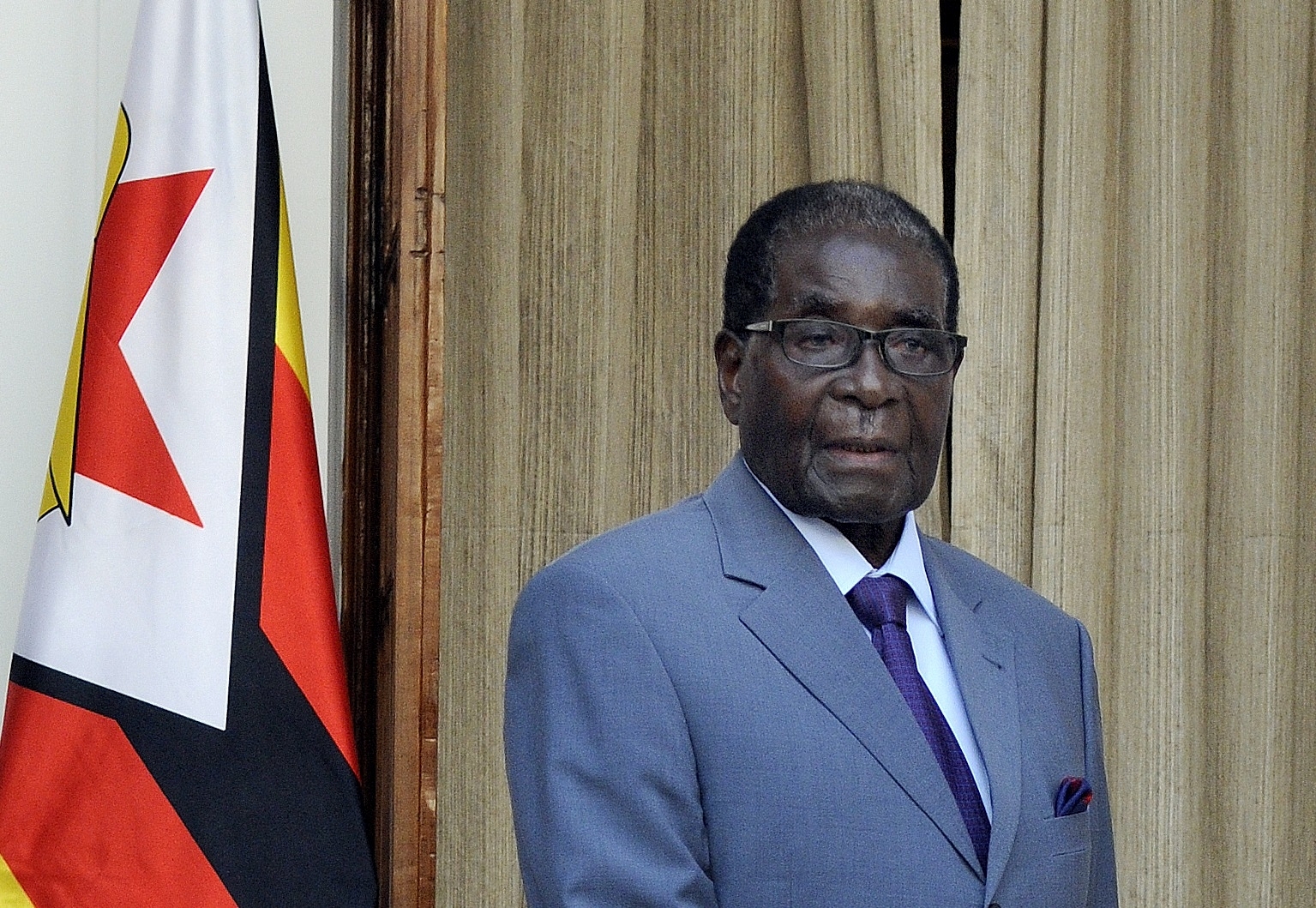
Zimbabwe Coup: President Robert Mugabe Under House Arrest After Military Takes Control
Zimbabwe's military leaders have seized control of the impoverished southern African nation, placing longtime leader Robert Mugabe under house arrest and deploying armored vehicles to the streets of the capital, Harare.
Mugabe's decades-long grip on power appeared to be fading as military vehicles blocked roads outside the parliament in Harare and senior soldiers delivered a late-night television address to the nation.
"The president... and his family are safe and sound and their security is guaranteed," Major General Sibusiso Moyo said in a statement.
"We are only targeting criminals around him who are committing crimes... As soon as we have accomplished our mission we expect that the situation will return to normalcy. This is not a military takeover of government,” he added.
But the generals' actions posed a major challenge to the 93-year-old Mugabe, who has ruled Zimbabwe since independence from Britain in 1980.
Neighbouring South Africa's President Jacob Zuma, one of Mugabe's closest allies, said he had spoken to the veteran leader by telephone. Mugabe "indicated that he was confined to his home but said that he was fine," the South African government said in a statement that called for calm and restraint.
Tensions between Mugabe and the military establishment, which has long helped prop up his authoritarian rule, erupted in public over recent weeks. The ruling ZANU-PF party has accused army chief General Constantino Chiwenga of "treasonable conduct" after he criticised Mugabe for sacking vice president Emmerson Mnangagwa.
Mnangagwa's dismissal left Mugabe's wife Grace, 52, in prime position to succeed her husband as the next president - a succession strongly opposed by senior ranks in the military. As the situation deteriorated overnight, prolonged gunfire was heard near Mugabe's private residence.
Today, the state broadcaster played liberation struggle songs, while many citizens in Harare shopped at markets, drove to work or queued outside banks despite the turmoil.
The US embassy warned its citizens in the country to "shelter in place" due to "ongoing political uncertainty".
South Africa urged Zimbabwe to resist any "unconstitutional changes" of government, and said it was sending envoys to Harare on behalf of the SADC bloc of southern African nations to help resolve the impasse.
President Mugabe and Grace made no public comment and their exact whereabouts was not known, while government and army spokesmen were not available to comment. "The government's silence on the military deployments seem to confirm that President Mugabe has lost control of the situation," Robert Besseling, of the London-based EXX Africa risk consultancy, said.
Mugabe is the world's oldest head of state, but his poor health has fuelled a bitter succession battle as potential replacements jockey for position. In speeches this year, Mugabe has often slurred his words, mumbled and paused for long periods.
His lengthy rule has been marked by brutal repression of dissent, mass emigration, vote-rigging and economic collapse since land reforms in 2000. Speculation has been rife in Harare that Mugabe had sought to remove army chief Chiwenga, who is seen as an ally of ousted Mnangagwa. (PTI)